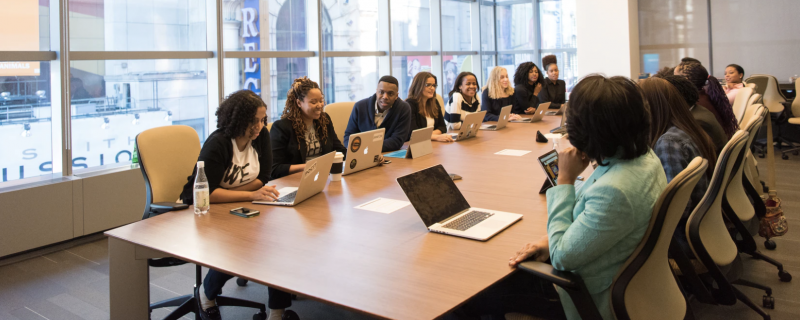Previously on Civic Superheroes, Episode 1: What’s Your Origin Story
Civic education doesn’t have to be boring! If you: 
- Treat the education as empowerment instead of an information presentation
- Emphasize the value attendees are getting from the event,
- Make the session equal parts education and feedback
Government staff can change citizen academies into origin stories, activating community members and turning them into Civic Superheroes!
Now, without further ado… Civic Superheroes, Episode 2:
I’m not locked in here with you. You’re locked in here with me.
So what lessons did we learn from conducting numerous Civic Superhero Training events for over two years, spending untold hours in rooms with strangers, with nothing but ten slides and the truth? Here are my top pieces of advice for creating Civic Superheroes.
Set an agenda, but keep it sparse
It’s crucial to have a plan for the flow of your presentation, but community members deserve a chance to help guide the conversation as well. Build in time to break free of the outline and have an honest dialogue with your community members.
If you have an hour for your presentation, plan for a 20-minute talk, max. The rest is listening. Practice your 5 Whys, your How Might We, and your What I’m Hearing You Say. These are the tools of the Civic Superhero Mentor.
Take notes. Visibly.
Demonstrate that you (and your agency) have an interest in the feedback you hear from your attendees. These are people who want to make things better. That’s why they’re at your event.
You have engaged community members, with a mindset to collaborate on improving the community: This is the highest-quality community feedback you can get.
Come prepared to take notes, maybe on a Plus/Delta chart. Publicly documenting both positive and negative comments lets you capture this feedback for your use in running your engagement program. During the meeting, taking positive and negative feedback can also stem off the cascade of complaints that sometimes happens when you open up the floor for comments. And it demonstrates that you’re seeking this feedback — a feeling that combats the perception of government not being interested in community input.
Know your material and keep it handy
You never know when you will need to start your presentation. Have your presentation practiced; be ready to give it any time there’s an opportunity.
Keep your slides available on a public site or a USB drive that’s always with you. Pick up an adapter so you can display slides from your phone. Look for opportunities that parlay one presentation or contact with another.
Your community has members who want to be empowered. You have the ability to empower them. Prepare yourself, because when the student is ready, you’ve got to appear!
Don’t schedule your own events
Very few community members wake up thinking “I’m going to learn about my government today!” So it’s difficult to advertise a civic education event and draw attendees.
Instead of scheduling your own space and advertising your stand-alone event, look for opportunities to present at local service organizations, shared interest groups, and networking events. These organizations are always looking for presenters and new content, and each time you present to a group you are amplifying your network.
Seek out historically under-resourced communities
It’s easy to engage those who already have power. They know the language. They recognize the value of taking part in local government. Your charge is to increase the ranks of Civic Superheroes.
Try Chambers of Commerce, local college or university groups, women’s business networks, and disability advocacy groups. There’s often a programming committee that schedules speakers. This is how you reach those who need you. And often, members will be able to suggest other organizations to connect with.
Your new sidekicks are named Mike and Ike
It’s never a bad idea to bring snacks. Snacks give you a chance to start off on a positive note. Even the most sour HOA president can’t stand up to an Atomic Warhead.
Candy and snacks — or any food — helps bring people to a human scale. That’s why diplomatic work involves so many dinners. Breaking bread together breaks down walls.
Just make sure to include a variety of options for people with different dietary needs. And almost nobody likes black licorice.
A hero can be anyone
I hope these notes help you establish or advance your practice of community empowerment. Civic Superhero Training has been the most enjoyable aspect of my career in local government, and I think it can be yours too. But your community is unique, and we can all learn from each other. So please leave a comment if you have experience or questions.
Up, up, and awaaay!!!
Jay Anderson is responsible for digital engagement and public processes at the city of Colorado Springs. Jay holds an MPA from the School of Public Affairs at the University of Colorado – Colorado Springs, where he also serves as the Chair of the Dean’s Community Advisory Board. Jay focuses on the point of engagement between the community and its institutions, creating programs that give a voice to people who want to have an impact on their government.





Leave a Reply
You must be logged in to post a comment.